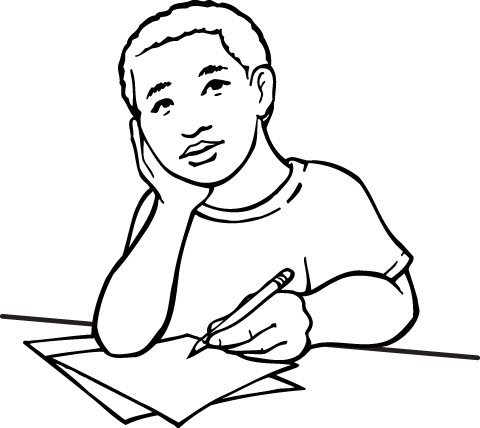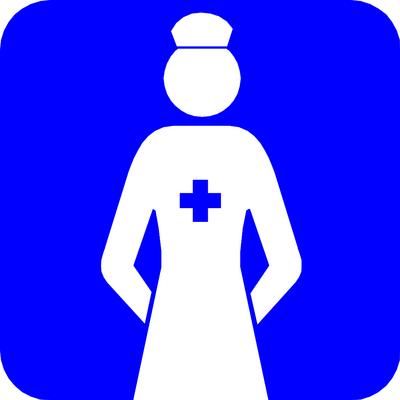

The idea of reflection as a useful tool for learning has roots in the writings of Dewey in 1938. Reflection is an activity which is involved in everyday cognitive processing. We have all reflected on our experiences but does this mean refection aids learning?
(See Johanna’s wiki for a background on reflection and criticisms of reflection.)
There are three main progressive stages involved in using reflection:
· Awareness of thoughts and feelings
· critical analysis of feelings
· analysis leading to new perspectives
(Atkins and Murphy, 1993- Review)
This article aims to look at evidence suggesting that reflection can improve learning using examples from higher education and professional development.
A model for learning through reflection
It has been suggested that learning through reflection will lead to ‘deep learning’ and contribute to a better learning experience (Loew & Kerr 1998). Marsick and Watckins (1990) proposed a model for informal and incidental learning in which they suggest reflection as a primary process of learning from experience.
This involves several stages:
1) Encounter a new experience
2) Learn about the context
3) Decide on a course of action
4) Draw on or develop skills
5) Produce a solution
6) Assess consequences
7) Draw conclusions
8) Frame experience/new understanding
Marsick and Sauquet (2000) argue that learning through reflection helps someone to learn through the interpretation of their experiences and that simple reflection, and critical reflection, is key to this model. The model focuses the role of feelings and critical thinking about experiences that lead to learning. For more on this model see chapter 19 “Learning through Reflection” by Marsick and Sauquet, in The Handbook of Conflict Resolution, 2000.
Reflection in learning

Moon (2005) argues that the role of reflection in learning comes from the later stages of learning when information has already been processed. She highlights 3 main areas in which reflection plays a role in learning:
The use of reflection in Higher Education
Reflection is clearly advocated in higher learning. The Higher Education Academy suggests that reflection has an important part in personal development planning and claims it is “an essential component of good quality learning”. They suggest that reflection can lead to improved learning, although they also acknowledge that students can find reflection difficult and that the student needs help to overcome this problem. Suggested methods for overcoming difficulties in using reflection are tasks such as reflective writing and suitable evaluation. A good brief summary for the role of reflection in higher education is “Reflection in Higher Education Learning” by Jennifer Moon, University of Exeter.
The Folio Project

A recent study which is part of the Folio Project supports the use of reflection as a learning aid in higher education. The projects aim is to develop and test electronic portfolios as a means of encouraging reflection (see http://scil.stanford.edu/research/projects/folio.html. for further information on the project and its aims). The findings of this suggest that through the use of reflection the students will improve their understanding of current and life-long learning and improve their attitudes towards learning. This study supports the idea of reflection aiding learning. For more information on the method and results found from this study (see Blomqvist et al.,2003)
Effectiveness of reflection in learning for professional development – the nursing example

As previously mentioned (see Johanna’s wiki) reflection is increasingly being used for learning in healthcare professions. As an evaluation of its effectiveness in this area a study by Smith (1998) looked at a group of student nurses. The study describes how reflection on experiences within an environment of practical learning can aid personal and professional development in a higher education setting. The paper reports that over the four years reflection on experiences allowed students to begin to question and critique what they had learned to further develop their professional skills. However, another study conducted in the same year, and also using student nurses, compared those who received reflective learning with those who did not and found no difference between the two groups (Lowe & Kerr, 1998). The study did however suggest that reflective teaching methods combined with conventional teaching could enhance learning. Such finding suggest, although not better than conventional teaching, reflective teaching produces the same learning effectiveness. As student’s numbers rise and teacher’s numbers stay the same the authors suggest reflective learning as a better means for teaching in higher education (see Lowe & Kerr, 1998).
Summary
While most people utilise the process of reflection, its role in learning is still unclear. Here I have looked into specific areas in which reflection has been shown to be useful. In such cases, reflection is believed to show learning that is equal, if not better, to conventional learning techniques. There are two basic methodological problems with research on reflection; the difficulty in telling when someone is reflecting and various design problems in the studies conducted. However, when using reflection in learning from experience, as evidence suggests, involves time and correct guidance. Professional development programmes and education services seem hopeful that reflection will be shown to improve learning, as some reflection does not seem to have the desired effect on learning. To quote a student from a study by Bloxham & Cerevkova (2007), “Although I reflected on my performance and skills development, I still did not get good marks. I was at a loss of what I was expected to write”
Useful References
For a brief introduction from an Education perspective – Moon, J., (2005) Learning through reflection. The Higher Education Academy, Guide for Busy Academics No. 4
General References
Atkins, S., & Murphy, K., (1993) Reflection: a review of the literature, Journal of advanced nursing, 18 (8), 1188 – 1192
Blomqvist, U., Handberg, L., & Naeve, A. (2003). New methods for focusing on students’ learning process and reflection in higher education. In Proceedings of the 28th IUT (Improving University Teaching) Conference, Växjö , Sweden .
Bloxham, S., & Cerevkova, A. (2007) Reflective Learning, Skills Development and Careers Management Online – An Evaluation of a First Year Law Module, Journal of Information, Law and technology (1) Special Issue on Law, Education and Technology
Dewey, J., (1938) Experience and Education. New York: Collier
Kolb, D.A., (1984) Experimental Learning, N.J.: Prentice Hall
Marsick and Sauquet, (2000). Learning through reflection, chapter 19, in The Handbook of Conflict Resolution.
Marsick, V.J., and Watkins, K.E. (1990). Facilitating the learning organization: Making Learning Count. England: Gower
Moon (2005) Reflection in learning &professional development: theory and practice. Oxon :Routledge Falmer
Redmon, R., (2006) Reflection in action: Developing Reflective Practice in Health and Social Services, Hampshire :Ashgate Publishing Ltd.
Schon, D., (1983) The Reflective Practitioner. London:Temple Smith
Nursing example (Also see Johanna’s references)
Baird, M., and Winter, J., (2005) Reflection, practice and clinical education, Transforming
Practice through Clinical Education, Professional Supervision and Mentoring, 143-159
Bulman, C., & Schutz, S. (2004) Reflective practice in nursing , (3rd ed),Oxford: Blackwell Publishing
Lowe & Kerr (1998) Learning by reflection: the effect on educational outcomes. Journal of advanced nursing, 27, 1030 – 1033
McBrien,B., (2007) Learning from practice –Reflections on a critical incident, Accident and Emergency Nursing , 15(3 ),128-133
Smith, A., (1998) Learning about reflection, Journal of Advanced Nursing, 289(4), 891-898
http://scil.stanford.edu/research/projects/folio.html (Also has interesting page on wiki pages and learning)